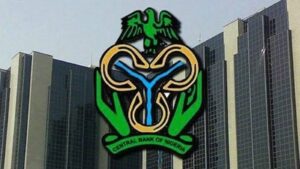The demands placed on chief executive officers (CEOs) in today’s global business landscape are immense, often leading to significant stress and burnout. As leaders tasked with steering organizations through complex challenges, CEOs must prioritize their well-being to sustain peak performance and avoid the detrimental effects of chronic stress. Here are four essential strategies to safeguard against CEO burnout:
Delegate and Empower: Effective delegation is pivotal for CEOs to manage their workload and focus on strategic priorities. Delegating tasks to capable team members not only relieves the burden of day-to-day responsibilities but also fosters a culture of empowerment within the organization. By entrusting capable individuals with specific responsibilities, CEOs can concentrate on critical decision-making and long-term visioning, promoting sustainable leadership practices.
Establish Boundaries: In the age of constant connectivity, establishing boundaries is crucial for CEOs to maintain a healthy work-life balance. Setting clear boundaries around work hours, email communications, and personal time is essential to prevent work from encroaching on personal well-being. CEOs should prioritize self-care activities such as exercise, mindfulness, and spending quality time with loved ones to recharge and mitigate the effects of prolonged stress.
Cultivate a Support Network: Building a robust support network is essential for CEOs facing the pressures of leadership. Engaging with peer groups, mentors, or executive coaches provides valuable opportunities for networking, knowledge sharing, and emotional support. Collaborating with fellow CEOs and industry peers allows leaders to gain fresh perspectives, share experiences, and receive constructive feedback, fostering resilience and professional growth.
Invest in Continuous Learning: Lifelong learning is instrumental for CEOs to adapt to evolving market dynamics and enhance leadership effectiveness. Investing in executive education programs, workshops, or leadership retreats enables CEOs to refine their skills, broaden their perspectives, and stay abreast of industry trends. Continuous learning not only enhances professional development but also cultivates a growth mindset, empowering CEOs to navigate challenges with confidence and agility.
Incorporating these strategies into their daily routines can equip CEOs with the resilience and agility needed to thrive in demanding leadership roles. By prioritizing their well-being and adopting proactive approaches to stress management, CEOs can mitigate the risk of burnout and sustain long-term success.
The imperative to address CEO burnout extends beyond individual well-being—it is integral to organizational performance and sustainability. A healthy, well-supported CEO sets a positive example for the entire organization, fostering a culture of well-being and resilience. By implementing these strategies, CEOs can lead with clarity, purpose, and vitality, driving enduring success for themselves and their organizations.
Proactive measures to prevent CEO burnout are essential for navigating the complexities of modern leadership. By embracing delegation, setting boundaries, cultivating support networks, and prioritizing continuous learning, CEOs can fortify their resilience and optimize their performance. As stewards of their organizations’ success, CEOs play a pivotal role in shaping a culture of well-being and sustainable leadership practices.











